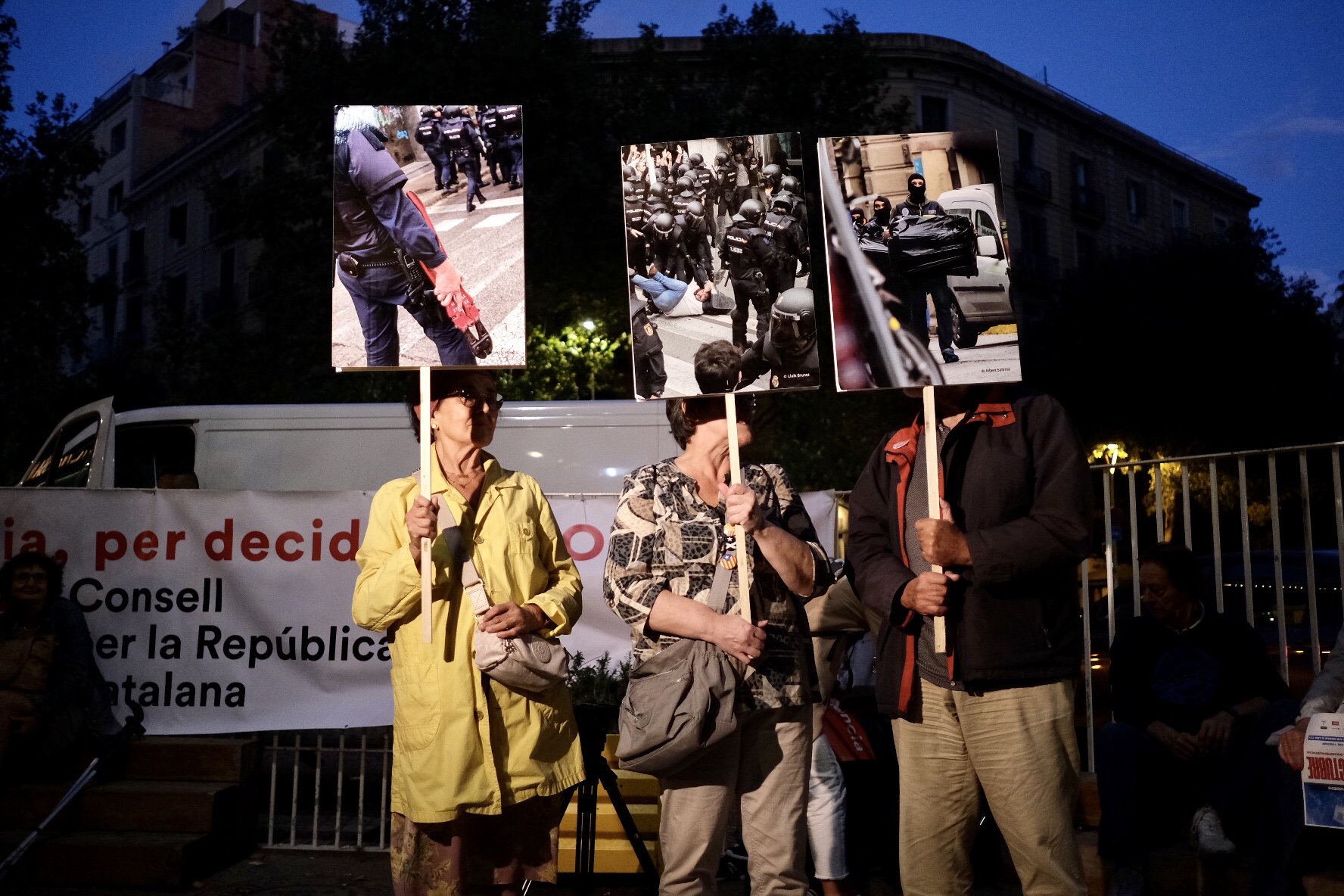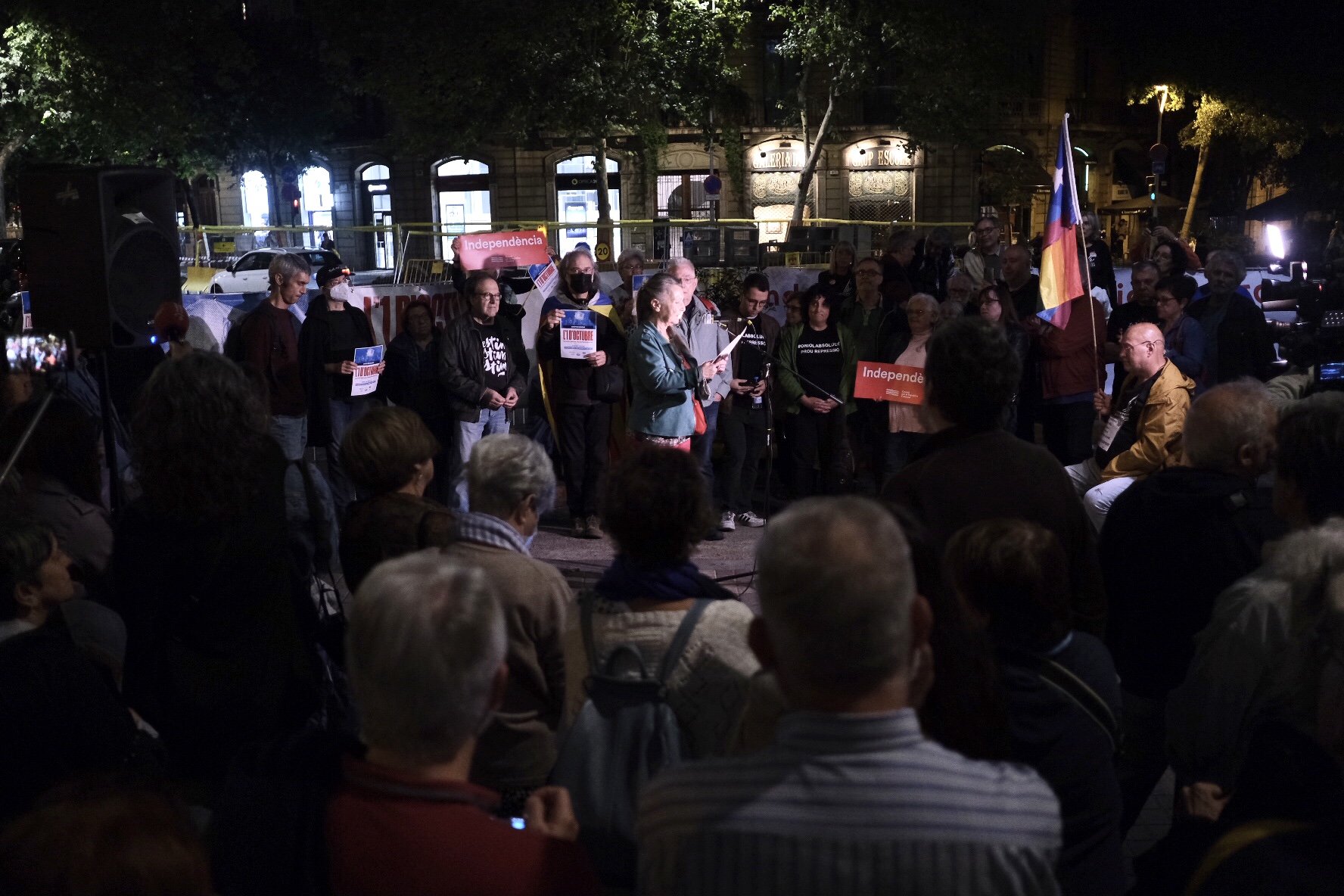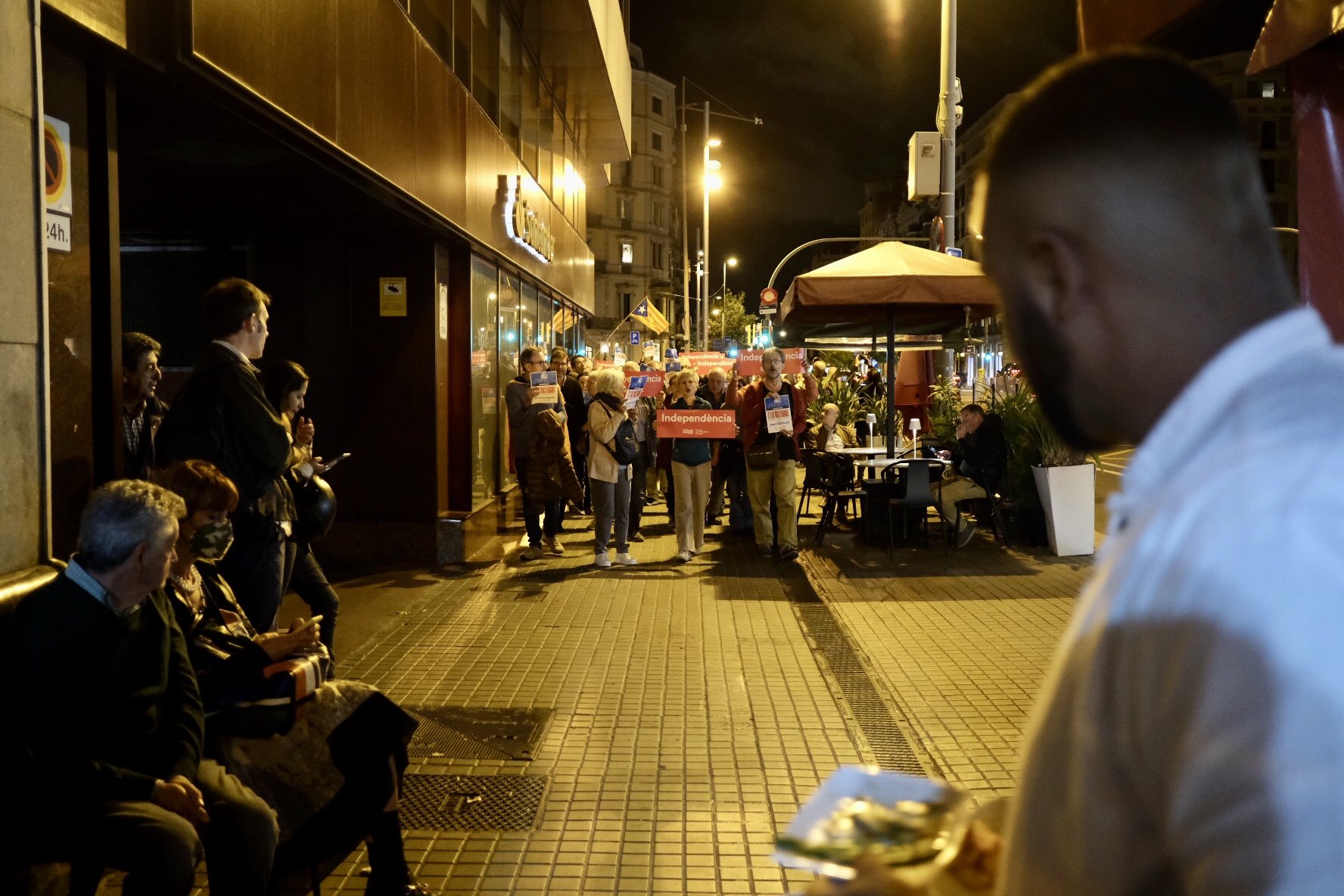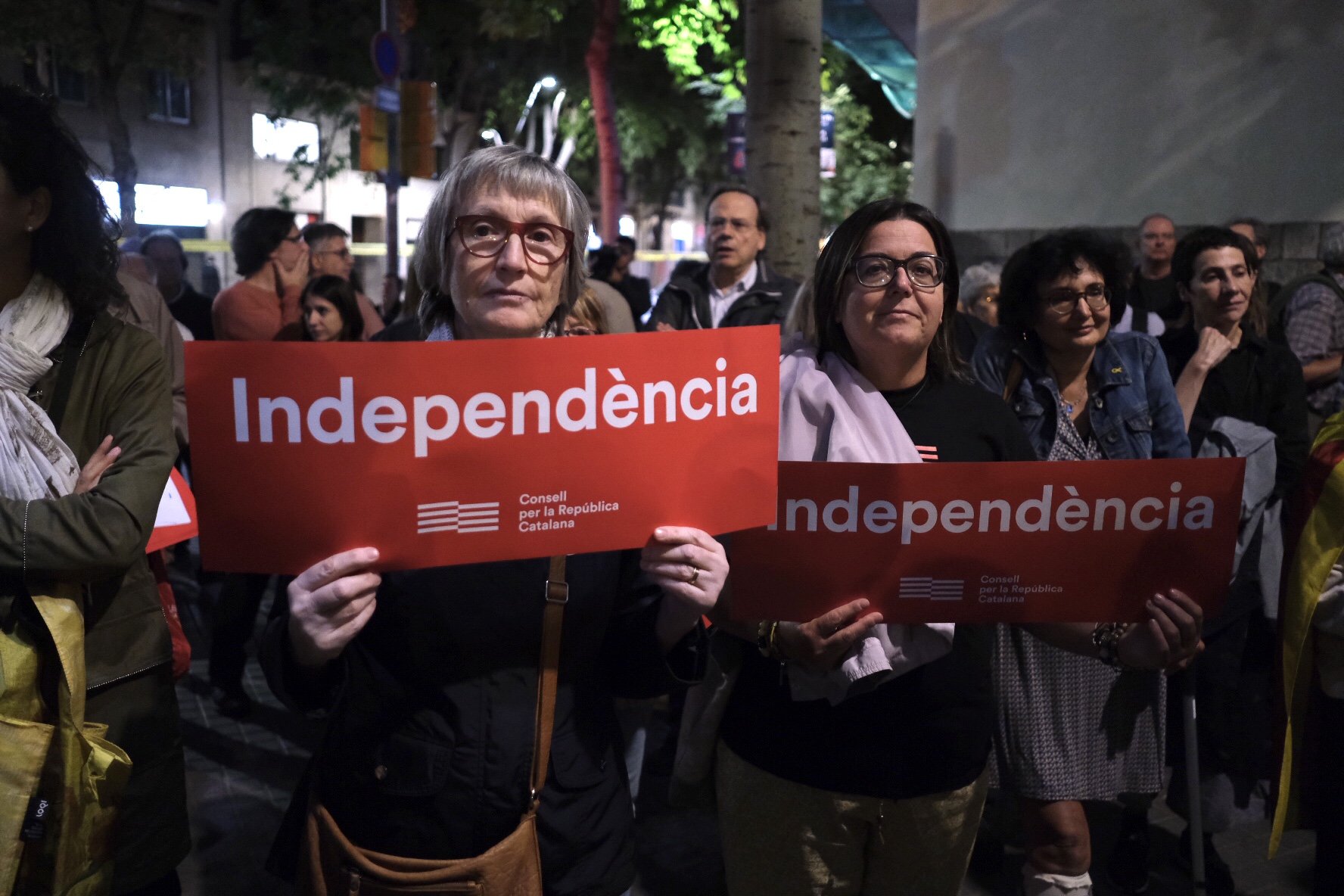"It was a great victory for the people." From Sant Julià de Ramis, near the northern city of Girona, to Roquetes, in the southern Baix Ebre county, seven polling stations opened their doors again on Friday evening to recall the essential role of the initiative by thousands of diverse Catalans that made possible the October 1st referendum, the 1-O. On the eve of the fifth anniversary of the unilaterally-held vote, the Council of the Republic (CdR) organized simultaneous nighttime mobilizations in seven educational centres across Catalonia, used as polling stations in 2017, where there were police raids on referendum day. One of these is the Institute Jaume Balmes, a secondary school in Barcelona's Eixample district, where hundreds of people were present to commemorate the victories - that is to say, every vote that was cast in the ballot box - and the losses - the more than a thousand people injured in the police violence. At the event, people who witnessed that day and all that followed it took part, such as CdR member Teresa Vallverdú, who was on the receiving of violence from Spanish police while defending the ballot boxes; Roger Español, who lost an eye to a rubber bullet, and Oriol Calvo, who has been a target of judicial retaliation for the 2019 post-sentence protests. All those who took part in the tribute stood up for the claim, above all, of the role of Catalan society in making that 1st of October a reality.

"The victory of the votes is ours"
During his turn on the mike, Roger Español expressed the bittersweet feeling that comes to him when he remembers the day of the referendum, an historic moment, which for him was darkened when the police "stole his joy". At the doors of the Institute, four images displayed by demonstrators recall the police action that cost the activist an eye. Five years later, he believes it is more important than ever to fill the streets, precisely because of the victims of police repression. "The victory of the votes is ours", was his cry, in the midst of the turbulent political actuality of Catalonia. For Español, it is necessary to "change the focus from the ballot boxes to the votes", and to honour each of the "blood-stained votes that entered the ballot box". In this respect, he stressed the key role of the popular initiative on the 1st October, of the people who defended the ballot boxes with their bodies and without whom the referendum would not have taken place. In his view, the autonomous management of Catalonia is "only 48% of the work" that the electorate opted for, and for this reason he asked those present to "go out into the streets" this October 1st and "push" the pro-independence politicians "to put into practice the meaning of the 1-O vote".


"1-O is the great victory of the people"
"1-O is the great victory of the people", read the actor Mont Plans in the opening address of the event. After the speeches of Español, Calvo and Vallverdú and before the singing of Catalan anthem, Els Segadors, the demonstrators started a march around the city block that surrounds the school, chanting slogans such as "October 1st, neither forgive nor forget" and " We voted, we won." Meanwhile, to the north, in Sant Julià de Ramis, the commemoration of the fifth anniversary of the 1-O became a call to recover the independence movement's unity. In one way or another, all the speeches given at the event lamented the current political rift and urged the parties to agree to follow the mandate that emerged from the polls five years ago. The mayor of the town, Marc Puigtió, asked "the three pro-independence parties" to find "the formula to go forward together": "The municipal world will be there, and so will the people". The institutional relations head for the Council of the Republic, Toni Castellà, described the current situation as a "disaster" and expects citizens to take to the streets en masse tomorrow to show that the people are still "stubbornly uprisen".
What happened on the eve of the 1-O?
Why was the event held the night before? Because, days before the referendum in 2017, due to concerns that police would take over the premises envisaged as polling centres and shut them down in advance, a wave of messages went out on social media and via pro-independence groups: that there was a need to ensure that schools and other community centres being used for voting on Sunday, October 1st, 2017 were kept full of activity. As long as the centres were in use for legitimate purposes, police could not shut them down. It was for that reason that, all across Catalonia, from the afternoon of Friday, 29th September, marathonian community festivals were organized in schools and community centres. All kinds of activities, for young and old. They spanned across two nights and the day in between, and brought all sorts of mostly-local people together. And this meant that, by the time, that the polls opened on Sunday, October 1st, 2017, the ballot boxes were in many cases being guarded by a community that had forged itself over the previous 36 hours. For many people, that was also one of the achievements of the 1-O.

March during the night mobilization / Carlos Baglietto


